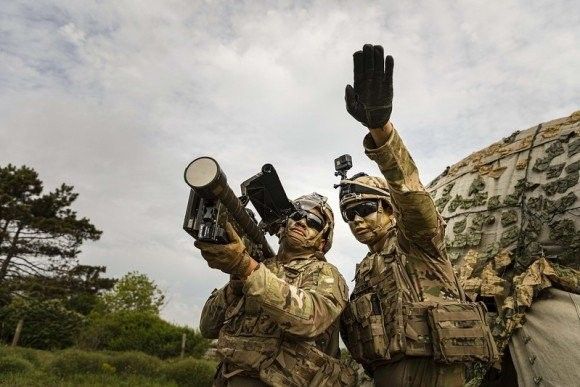Armed Forces
Polish Government Adopts New Strategy for National Security
At the meeting of the Council of Ministers the government has adopted new Strategy for National Security for the Republic of Poland, which has been created by the Minister of Defence. The document covers the issues which are related to the widely understood security of the Republic of Poland. It also takes the possible Russian Threat into account.
Strategy is to “completely cover the issues of national security and indicate the optimal ways of using any state resources in order to realize goals within the spheres of: defence, society, protection and economy”. The preceding strategy of national security adopted in 2007 is to be valid until the moment when the new document created by the Council of Ministers enters force on 21st October this year – as the Prime Minister's Office states.
The new strategy takes the Russian threat into account, particularly due to the Russian attempts to reconstruct Russia’s superpower position in the region. In accordance with the information released by the Prime Minister Office “there is a risk of local and regional conflicts in direct vicinity of Poland”, and threats for the Republic of Poland may be of both military and non-military character. Any large scale conflict is considered to be “less plausible”, however threat of armed activity “below the threshold of classic war” has been taken into account.
National Security Strategy sets three priorities of the Polish security policy. Polish Authorities will be focused on creating the national capabilities within the scope of own security and NATO reinforcement, as well as within the defence and security policy of the EU and strategic relationship with the partner states, including USA. The strategy will also support widely understood security activities undertaken by the international community, including the United Nations.
When it comes to the national capabilities “Poland is to focus its strategic efforts mainly on providing security to its own citizens and territory”, considering support of the allied defence capabilities and acting against threats located beyond the NATO territory. The Polish authorities will be particularly concerned about the areas of security policy, within which “allied (joint) operations may become difficult”.
Within the scope of the second priority, Poland aims at reinforcing the NATO defence capabilities and NATO eastern flank. It has been emphasised that cooperation with the US is of paramount significance (including support for the US presence in Europe). Additionally it has been underlined that there is a need of maintaining a close cooperation with the neighboring countries and a need to increase the political integrity. The activities undertaken by the Polish government will also aim at “deepening the integration processes of the EU in a way which would provide sufficient security potential, including defence capabilities”.
In order to realise the third priority, reinforcement of the UN and reconstruction of the Organization for Security and Co-operation in Europe will be needed. Additionally law enforcement within the arms control area needs to be executed more effectively.
In accordance with the strategy the Polish authorities will execute defence activity (in the military sphere), which aims at “maintaining and demonstrating multi-faceted readiness of the country to react to the military threats to the Polish independence and territorial integrity”. Another primary goal is to protect Poland, including provision of conditions which would make it possible to maintain common security and public order, along with internal stability of the country and functioning of the critical infrastructure. Last, but not least, the strategy will have a social dimension which is to be focused on “creating safe conditions in which the citizens would live”.
This strategy assumes that certain preparations needs to be undertaken, inter alia within the scope of tightening the way the Polish security system functions in the military and non-military, as well as in the external area. As the Prime Minister Office states “The basic tasks are related to establishing the legal and organizational background for the integrated national security system as well as implementation of rules and procedures of strategic national security control, which will be unified in any state of national security.”

